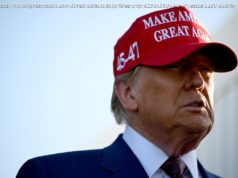The ones who flip at the last minute get the attention. The ones there all along often don’t.
Sen. John McCain (R-Ariz.) played his hand on the Senate Republicans’ health-care proposal for the maximum political effect. It’s always the case that it’s the people who are wavering at the last minute who end up getting all the attention: Undecided voters, new car buyers, bachelorettes on reality television shows. In politics, though, there’s special cultural role acclaim for those who, at the last minute, do the unexpected — often while those who did exactly what was expected get little fanfare.
This ends up yielding weird results. It’s not the politicians who’ ve actively pushed for or against a measure for years, building relationships with activists and introducing legislation who get the credit for passage. It’s the guy who’s spent all that time indifferent about or hostile to the cause, who at the last minute flips his position. That’s the guy who makes the headlines. The others have to live with, you know, winning.
McCain’s vote early Friday morning against the measure had been telegraphed for about an hour beforehand, but his loud “No!” of opposition was still the crack that caused the wall to crumble. Political genius. The maverick is back. Etc. But that “no” came from atop 50 other votes of opposition, not all of them easy. Any one of those 50 votes vanishes and McCain isn’ t the guy who killed Trumpcare, he’s just a guy who eventually changed his mind for no real reason.
In other words, those 50 people helped McCain be the political winner. Here are seven people in particular who he can thank for his victory lap this morning.
Sen. Susan Collins (R-Maine) . It’s sort of amazing that Collins hasn’ t gotten more attention for her role in opposing the health-care bill this week. She was one of two Republican senators who opposed the motion-to-proceed, the procedural vote that allowed the climactic vote on Friday morning to happen at all. She was one of the three votes against the Republican bill.
She also made headlines for bashing President Trump after a hearing when a live microphone caught her conversation with a colleague. The administration’s handling of the budget was just “incredibly irresponsible, ” and she was “worried” about what might happen. She delivered bad headlines for Trump on three different days — yet somehow has escaped his Twitter wrath.
Sen. Lisa Murkowski (R-Alaska) . Murkowski did not escape that wrath.
She also didn’ t escape a phone call from the secretary of the interior in which projects important to her state were tacitly threatened . (That’s according to her colleague from Alaska, who received a similar call. She told reporters on Thursday that she preferred not to use the word “threat.”)
Murkowski’s opposition was driven, among other things, by a desire to protect funding for Planned Parenthood, a commitment she made publicly in the state earlier this year. When McCain’s “no” became known on the floor of the Senate as voting loomed, Murkowski was swarmed by her colleagues, hoping to cajole her into flipping. As on the motion-to-proceed, which she also opposed, Murkowski didn’ t budge.
Five red-state Democrats: Sens. Joe Manchin III (W. Va.) , Heidi Heitkamp (N. D.) , Jon Tester (Mont.) , Claire McCaskill (Mo.) and Joe Donnelly (Ind.) . The chart above picks out notable Senate votes from the failure of the Republican health-care bill.
The black dots are the three Republicans who voted no. The large red dots are Republicans who, at one point or another, seemed like they might play the spoiler role that McCain embraced, including McCain’s colleague Jeff Flake. (Notice that Flake is much more conservative than McCain, by the estimate of VoteView. That certainly made a difference.)
The little red, yellow and blue dots are those senators who voted as expected. That includes blue-state Democrats or the two independents who voted against the measure, as their constituents would have wanted. But the large blue dots? Those votes were almost certainly harder.
Manchin’s home state of West Virginia backed Trump by a 42-point margin in 2017. By 42 points, West Virginia voters said they supported Donald Trump over Hillary Clinton, and supported his policies and leadership, including, presumably, the health-care bill that Trump wanted to see passed. His colleague, Shelley Moore Capito (R) , considered voting against the effort, but ultimately stuck with her party despite being about as moderate as Murkowski.
But at no point did Manchin appear to waver. Same with the other four. Their states backed Trump by an average of 23 points, but Heitkamp, Tester, McCaskill and Donnelly held firm. No on motion-to-proceed, no on the final bill. Had any of them indicated a willingness to jump ship, they’ d have been embraced by the president and by Republicans in their home states (at least until reelection) , but none did.
Granted, this was not a popular bill. There were a slew of reasons to oppose the measure, including the way it was drafted (which was much of the reason that McCain said no) .
But if credit or blame is being disseminated, these seven senators deserve more of it than the senior senator from Arizona. In a 51-49 vote, every vote is the deciding vote, even the ones that were quietly there all along.





